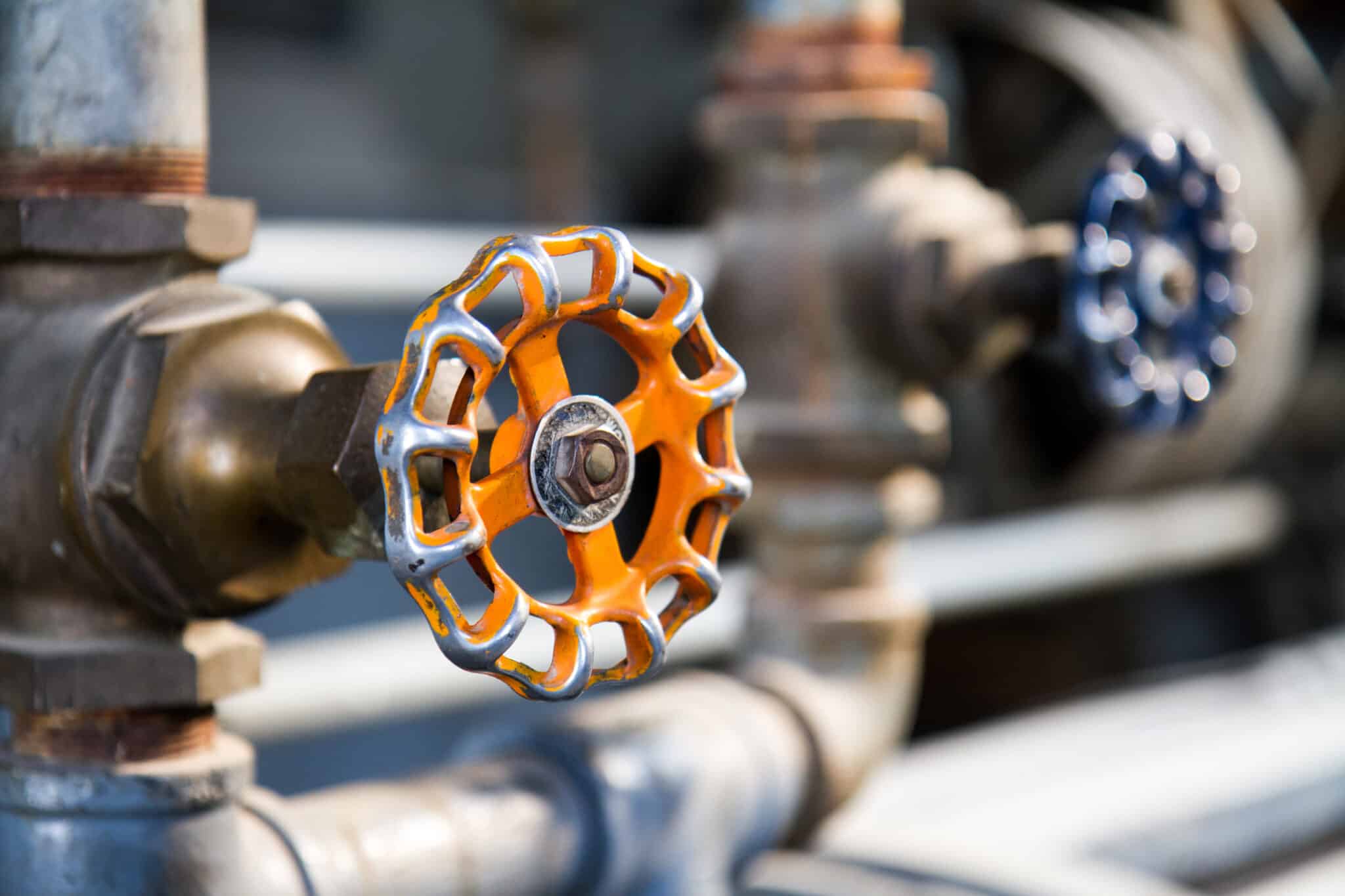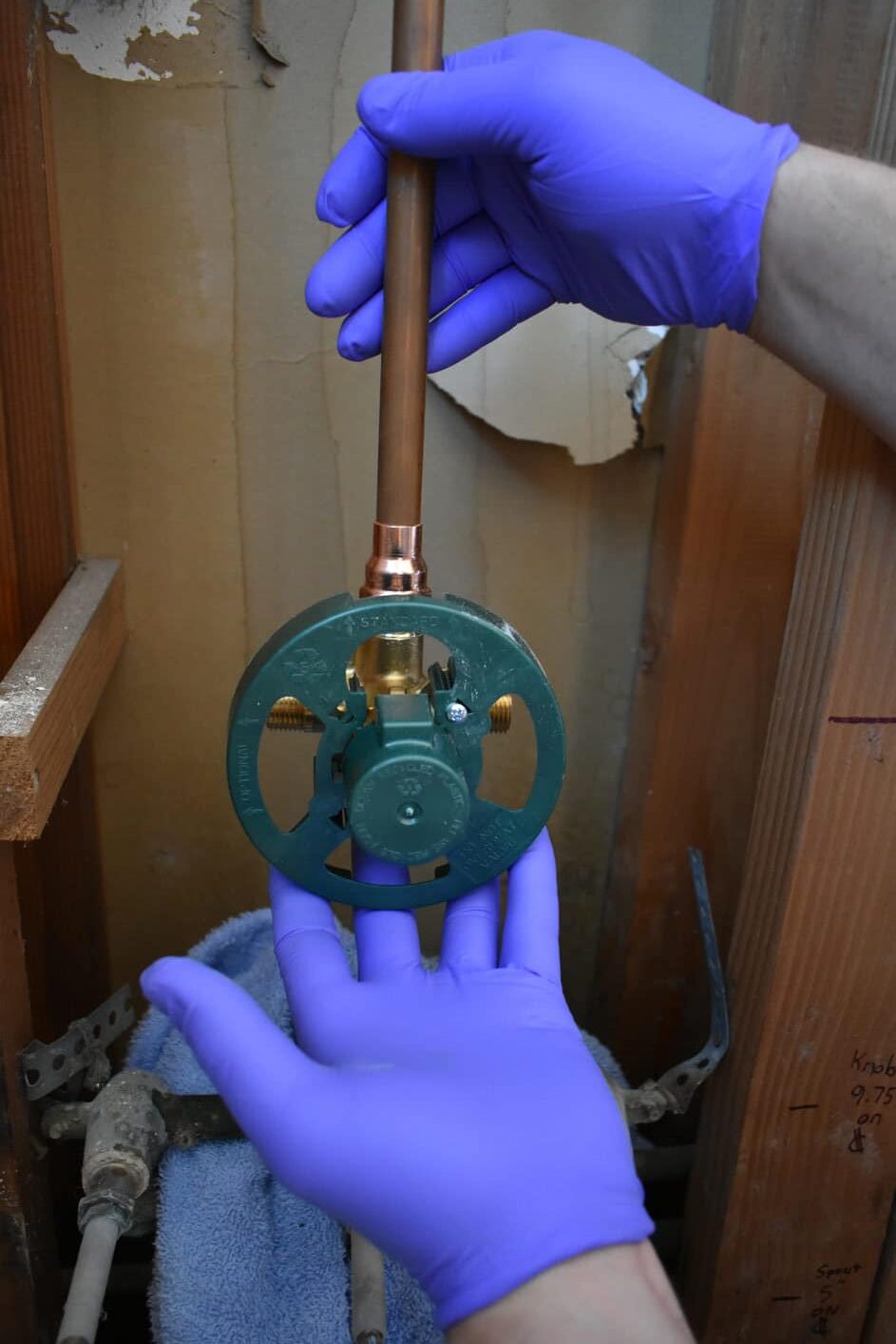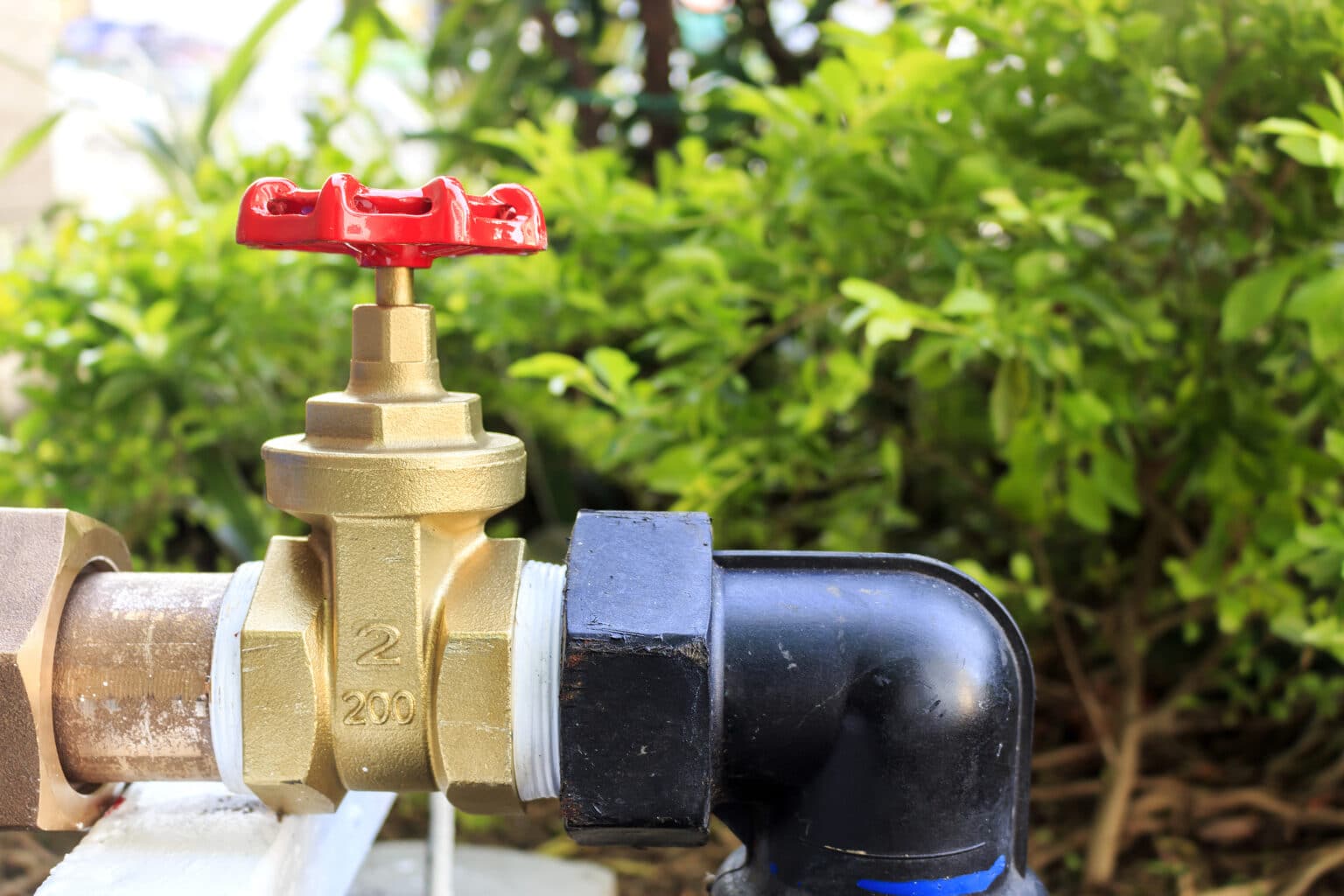Selecting the right plumbing valves is a crucial step in ensuring the longevity and efficiency of your home’s plumbing system. Whether you’re in the bustling city of Phoenix, the vibrant streets of Scottsdale, or the dynamic landscapes of Mesa, the choice of plumbing valves can significantly impact your daily life. These components, often overlooked, play a pivotal role in controlling the flow of water and maintaining the integrity of your plumbing infrastructure. Understanding the different types of plumbing valves and their specific functions is the first step toward making an informed decision.
Plumbing valves come in various shapes, sizes, and functionalities, each designed to suit particular applications within your home. From regulating water pressure to preventing backflow, the right valve can prevent potential disasters and save you from costly repairs. Phoenix homeowners, in particular, understand the importance of having a reliable plumbing system to withstand the challenges of desert living. Therefore, choosing the right plumbing valves becomes not just a matter of preference but a necessity.
In cities like Scottsdale and Mesa, where temperatures can vary dramatically, selecting valves that can handle such fluctuations is essential. The material, durability, and ease of operation are key factors to consider when browsing through the myriad options available. Whether you’re undertaking a minor repair or a major renovation, the quality of the plumbing valves you select will directly affect the functionality and efficiency of your plumbing system.
To navigate the vast selection of plumbing valves, it’s important to arm yourself with knowledge and seek advice from professionals when needed. This article aims to shed light on the different types of plumbing valves and offer tips on selecting the right ones for your home. By understanding the specific needs of your plumbing system and the unique characteristics of each valve type, you can make choices that ensure the longevity and reliability of your plumbing infrastructure.
Understanding the Basics of Plumbing Valves
Plumbing valves are essential components in any home’s plumbing system, serving as the gatekeepers of water flow. Each type of valve offers unique benefits, making it crucial to understand their differences. For example, ball valves are known for their durability and excellent shut-off capabilities, ideal for main water shutoffs in homes. On the other hand, gate valves are better suited for applications where water flow needs to be adjusted or regulated.
In Scottsdale, where water conservation is a priority, homeowners might prefer pressure-reducing valves. These valves help in lowering water pressure from the main supply, making them efficient for reducing water wastage and preventing pipe damage. Similarly, check valves are invaluable in preventing backflow, ensuring that your home’s water supply remains uncontaminated. Such features are particularly important in areas with fluctuating water quality.
Choosing the right material for plumbing valves is another critical decision. Options like brass, stainless steel, and PVC each have their pros and cons, depending on the application. Brass valves, for instance, are highly resistant to corrosion and suitable for hot water lines, making them a popular choice in Mesa homes. Stainless steel valves, while more expensive, offer superior strength and longevity, ideal for high-pressure applications.
Lastly, ease of operation is a factor that should not be overlooked. Valves that are easy to turn and operate can significantly enhance the user experience, especially in emergency situations where quick shut-off is necessary. Consulting with a plumbing professional can provide insights into which valves offer the best combination of durability, efficiency, and ease of use for your specific needs. By considering these aspects, homeowners can select plumbing valves that ensure a reliable and efficient plumbing system.

Types of Plumbing Valves for Your Home
Understanding the various types of plumbing valves is crucial for homeowners in Phoenix and beyond. Globe valves, for instance, are designed to regulate flow in a pipeline, offering precise control over water speed and volume. This makes them an excellent choice for areas in your home where managing water flow is important. Their structure allows for a tight seal, which is beneficial in preventing leaks and maintaining efficient water use.
In Scottsdale, where the emphasis on aesthetic and functional plumbing is high, angle valves come into play. These valves are not only effective in controlling water flow but also add a sleek look to plumbing fixtures. They are typically used where the water pipe enters the room from the wall, making them ideal for under-sink applications. Their design facilitates an easy connection to faucets and toilets, enhancing both appearance and functionality.
For homeowners in Mesa, considering anti-siphon valves could be a wise decision, especially for outdoor applications like garden hoses or irrigation systems. These valves prevent contaminated water from flowing back into the clean water supply, a feature that is critical in maintaining the health and safety of your household’s water. By installing these valves, you can ensure that your home’s water system is protected against backflow and contamination.
Lastly, thermostatic mixing valves are becoming increasingly popular for their ability to mix hot and cold water to a desired temperature before it reaches the tap. This not only prevents scalding but also conserves water by eliminating the need to manually adjust temperature. They are particularly useful in homes with young children or elderly residents, offering peace of mind by maintaining a consistent and safe water temperature. As plumbing technology evolves, these valves represent a step forward in home safety and efficiency.
How to Determine the Right Size for Plumbing Valves
Determining the right size for plumbing valves is essential for the efficiency and safety of your home’s plumbing system. In Scottsdale, homeowners should consider the diameter of their existing pipes to ensure a perfect fit. This prevents leaks and maintains consistent water pressure throughout the home. Consulting with a plumbing expert can provide valuable guidance in selecting the appropriate size.
In Mesa, the water usage and flow rate within the home play a significant role in choosing valve sizes. A larger valve might be necessary for areas with higher water demand to accommodate the flow without reducing pressure. Conversely, smaller valves are suitable for areas with minimal water usage, optimizing the system’s overall performance. Understanding these requirements is key to making an informed decision.
Another factor to consider is the future expansion or modification of your plumbing system. Installing valves that can handle potential increases in water demand ensures longevity and adaptability. This foresight can save homeowners from costly upgrades or replacements down the line. It’s about balancing current needs with future possibilities for a robust plumbing setup.
Lastly, the type of valve plays a part in determining the right size for your plumbing needs. Different valves serve different purposes, from regulating flow to preventing backflow. Each type has specific size requirements based on its function. By carefully considering these aspects, homeowners can select plumbing valves that not only fit their system but also enhance its performance and reliability.
The Role of Material in Plumbing Valves Selection
When choosing plumbing valves for your home in Scottsdale, the material of the valve plays a crucial role in its longevity and functionality. Brass valves, known for their corrosion resistance, are a popular choice for both indoor and outdoor applications. Their durability makes them suitable for the varying water conditions found in many homes, ensuring a reliable performance over time. Opting for brass valves can offer homeowners peace of mind, knowing their plumbing system is built to last.
In Mesa, homeowners might consider PVC valves for certain areas of their plumbing system, especially where chemical resistance and affordability are priorities. PVC valves are lightweight, easy to install, and offer excellent resistance to a wide range of chemicals, making them ideal for wastewater systems. Their cost-effectiveness and low maintenance requirements make PVC valves an attractive option for budget-conscious homeowners. However, it’s important to assess the specific needs of your plumbing system to determine if PVC is the right choice.
Stainless steel valves represent another option, prized for their strength and resistance to high temperatures and pressures. This makes them an excellent choice for homes in Phoenix that require a robust plumbing system capable of handling extreme conditions. Stainless steel valves are also resistant to rust and corrosion, contributing to a cleaner water supply. While they may come with a higher upfront cost, their durability and reliability can lead to long-term savings.
Ultimately, selecting the right material for your plumbing valves requires considering the specific requirements of your home’s plumbing system. Whether you’re in Scottsdale, Mesa, or another part of Phoenix, taking into account factors like water quality, pressure needs, and environmental conditions will guide you to the best choice. Consulting with a plumbing professional can provide valuable insights, ensuring that your selection not only meets your current needs but also accommodates future demands.

Installation Tips for Plumbing Valves
Installing plumbing valves correctly is crucial for the efficient and safe operation of your home’s plumbing system. In Scottsdale, homeowners should ensure that valves are accessible for maintenance and emergency shut-offs. This means placing them in locations that are easy to reach without needing to move heavy objects or climb. Proper installation prevents future headaches and enhances the system’s reliability.
In Mesa, it’s essential to follow manufacturer instructions closely when installing plumbing valves. Each type of valve may have specific requirements for orientation and support to function correctly. For instance, some valves must be installed in a particular direction to work properly, indicated by an arrow on the body. Adhering to these guidelines ensures optimal performance and longevity.
Sealing connections properly is another critical step in the installation process. Using the right type of thread tape or sealant can make a difference in preventing leaks. In plumbing, a leak-free connection is paramount, and choosing a sealant compatible with the valve material and water type in your home is key. This attention to detail will safeguard your home against water damage and loss.
Lastly, testing the installed plumbing valves is a step that should not be overlooked. Once everything is in place, slowly turn on the water to check for any signs of leakage or malfunction. This final check ensures that your plumbing system in Phoenix is ready to handle daily demands safely and efficiently. Proper testing confirms the success of your installation and provides peace of mind.
Maintenance Tips for Long-Lasting Plumbing Valves
Maintaining your plumbing valves in Phoenix can significantly extend their lifespan and ensure your home’s plumbing system operates smoothly. Regular inspections are key to catching any potential issues early on. By checking your valves for signs of wear or leaks at least once a year, you can prevent minor problems from escalating into major repairs. This proactive approach saves time, money, and stress in the long run.
In Scottsdale, it’s important to exercise your valves periodically to keep them functioning properly. Just like any mechanical device, valves can become stiff and hard to operate if not used regularly. Turning them off and then back on every few months ensures they remain easy to operate. This simple practice can be especially beneficial in emergency situations where quick access to shut off the water is crucial.
For homeowners in Mesa, applying lubricant to valve stems can prevent corrosion and facilitate smoother operation. Ensure the lubricant is compatible with your plumbing valves’ material to avoid any chemical reactions that could cause damage. This small step not only enhances the performance of your valves but also contributes to their longevity, ensuring they continue to function effectively for years to come.
Lastly, understanding when to call in a professional is crucial. If you notice any persistent issues with your plumbing valves, such as leaks or difficulty in operation, seeking expert advice can prevent further damage. Professionals can offer targeted solutions and even recommend upgrades if necessary. Trusting a skilled plumber with your valve maintenance can ensure your home’s plumbing system remains in top condition.
Common Mistakes to Avoid When Choosing Plumbing Valves
When choosing plumbing valves for your home, one common mistake is overlooking the compatibility with your home’s water quality. In Scottsdale, the water can be hard, which affects certain materials differently. Opting for valves that resist corrosion, such as those made from brass or stainless steel, can save you from frequent replacements. This foresight ensures your plumbing system remains efficient and durable over time.
Another error to avoid is neglecting the valve’s operation type based on its intended use. In Mesa, for example, a valve that’s easy to operate is crucial for emergency shut-offs. Selecting a valve that requires tools or excessive force to turn could delay response times during a water leak, leading to potential water damage. Always consider the ease of operation to enhance the safety and functionality of your plumbing system.
Homeowners often forget to factor in the future expansion of their plumbing system. Installing valves that only meet current needs without room for adjustments can lead to costly renovations later. Whether you’re planning to add a bathroom or upgrade your kitchen, choosing versatile plumbing valves can accommodate these changes. This approach not only saves money but also ensures your system’s adaptability to future needs.
Lastly, underestimating the importance of professional advice is a mistake that can lead to unsuitable choices. While DIY projects are popular, consulting with a plumbing expert before selecting valves can provide insights into the best options for your specific circumstances. Professionals can recommend the most reliable and efficient valves, ensuring your plumbing system in Phoenix operates smoothly for years to come. Their expertise can guide you in making informed decisions, avoiding common pitfalls in valve selection.
Where to Buy Quality Plumbing Valves
When looking for quality plumbing valves in Phoenix, it’s essential to start with reputable suppliers. Many local hardware stores and plumbing supply shops offer a wide range of options tailored to the specific needs of homeowners in the area. By choosing a trusted retailer, you ensure access to high-quality products that can withstand the unique challenges of the Phoenix climate. This approach not only guarantees durability but also provides peace of mind knowing your plumbing system is equipped with reliable components.
In Scottsdale, specialty plumbing stores are another excellent source for finding the right plumbing valves. These outlets often carry a more extensive selection than general hardware stores, including specialized items not found elsewhere. Staff at these stores can offer valuable advice based on their extensive knowledge and experience, helping you make an informed decision. Their expertise can guide you to the best valves for your home’s specific requirements, ensuring optimal performance.
For residents in Mesa, online shopping presents a convenient alternative to traditional brick-and-mortar stores. Many reputable online retailers specialize in plumbing supplies, offering competitive prices and a broad selection. Shopping online allows you to compare different brands and models from the comfort of your home, making it easier to find the perfect match for your plumbing system. Additionally, customer reviews can provide insights into the performance and quality of various valves, aiding in your decision-making process.
Regardless of where you decide to purchase your plumbing valves, it’s crucial to verify the compatibility with your home’s plumbing system. Ensuring the valves you select are suitable for the water pressure, temperature, and quality in your area is key to their effectiveness and longevity. Consulting with a professional plumber before making a purchase can help avoid potential issues, saving time and money in the long run. By taking these steps, homeowners in Phoenix, Scottsdale, and Mesa can confidently choose the right plumbing valves for their needs.
Frequently Asked Questions
What are the types of plumbing valves?
Plumbing valves come in various types, each serving a unique purpose in your home’s plumbing system. Ball valves, for example, offer durable and reliable control for water flow. Gate valves, on the other hand, are great for applications requiring a straight-line flow. Lastly, check valves prevent water from flowing backward, ensuring your system works efficiently.
How do I know which valve size I need?
Choosing the right size for plumbing valves is crucial for your system’s efficiency. Measure the pipe’s diameter where the valve will be installed. This ensures a perfect fit and prevents leaks. Always consult with a professional if you’re unsure, as they can provide expert advice tailored to your specific needs.
What materials are plumbing valves made of?
Plumbing valves are made from various materials to suit different needs. Brass valves are popular for their durability and resistance to corrosion. Plastic valves offer a lightweight and cost-effective option for less demanding applications. Stainless steel valves, known for their strength, handle high pressures well, making them ideal for commercial settings. Each material provides unique benefits, ensuring there’s a perfect match for any plumbing requirement.
How do plumbing valves affect water flow?
Plumbing valves play a key role in managing water flow in your home. They allow you to control the volume and direction of water, making it easy to shut off supply during repairs. Properly selected valves ensure efficient water usage and prevent leaks. Therefore, choosing the right valves is essential for maintaining a smooth and reliable plumbing system.
When should I replace my plumbing valves?
You should replace your plumbing valves if you notice leaks, rust, or difficulty operating them. Regular inspections help catch issues early, preventing water damage. Upgrading to newer models can also improve your system’s efficiency. Always consult a professional to ensure a proper fit and installation.


